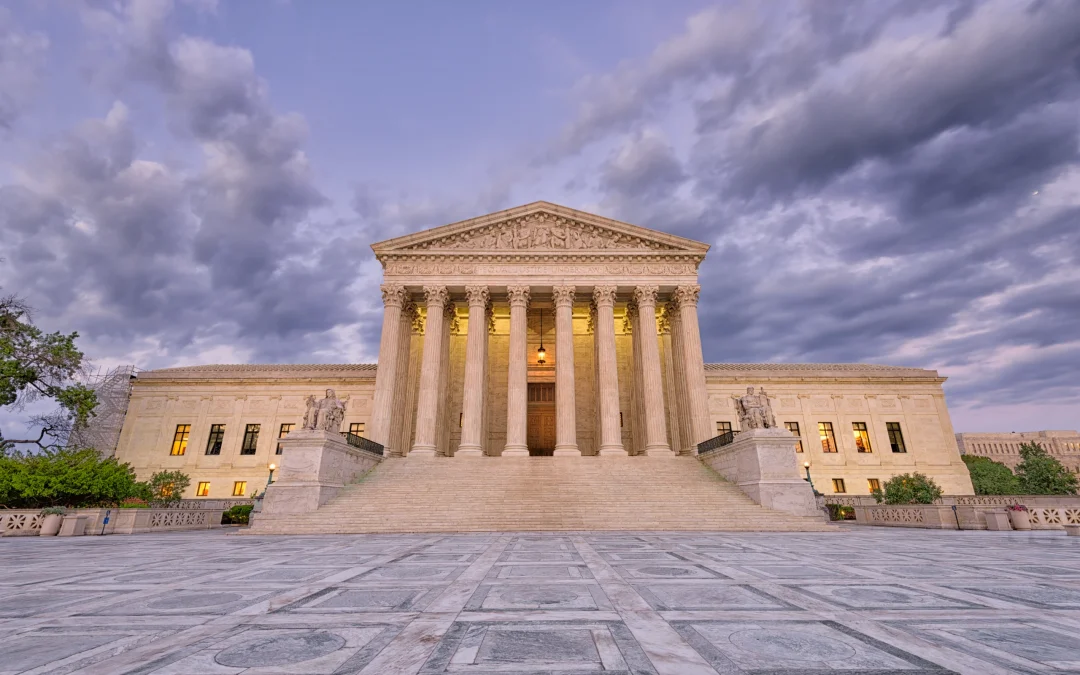The recent Supreme Court ruling that overturned the 1973 decision of Roe vs. Wade has reignited the debate over abortion in our society and within the church. Listening to friends and colleagues, it’s clear we don’t all think alike on this deeply personal and consequential issue.
I’ve gone around and around, started and stopped and started again, trying to figure out what to say as your pastor. There are political and power dynamics at work in this issue that have little to do with the gospel of Jesus Christ. Yet at the same time, the issue of abortion deals with life and death, fundamental questions about personhood, and how we as a society can best care for all persons involved in what are often very painful and difficult situations.
We do all of this as sinful people – as people with our own bias and limited knowledge, our own pain and suffering. “No one is good but God alone,” Jesus said. So our first task when dealing with issues as complex as abortion is to check our self-righteousness at the door. We all have much to learn from one another as we wrestle with the ever-expanding implications of trying to love like Jesus.
Much of this wrestling begins with how we use our language. In 1991, the ELCA produced a social statement on abortion, the very first such social teaching from the newly formed church. Yes, that was thirty years ago. While parts of it are dated, it remains a guiding teaching for the church and can still provide a framework for our conversations today. The following excerpt continues to guide much of my own thinking:
“The language used in discussing abortion should ignore neither the value of unborn life nor the value of the woman and her other relationships. It should neither obscure the moral seriousness of the decision faced by the woman nor hide the moral value of the newly conceived life. Nor is it helpful to use the language of ‘rights’ in absolute ways that imply that no other significant moral claims intrude. A developing life in the womb does not have an absolute right to be born, nor does a pregnant woman have an absolute right to terminate a pregnancy. The concern for both the life of the woman and the developing life in her womb expresses a common commitment to life.”
“A common commitment to life” is larger than defining when life begins. It also takes into account the full personhood of the living human being who must sustain a developing life, sometimes at risk to their own. Presiding Bishop Eaton recently released a statement regarding the court’s decision where she emphasizes more of the church’s teaching.
In summary, the social statement says this church opposes:
- the total lack of regulation of abortion;
- legislation that would outlaw abortion in all circumstances;
- laws that prevent access to information about all options available to women faced with unintended pregnancies;
- laws that deny access to safe and affordable services for morally justifiable abortions;
- mandatory or coerced abortion or sterilization;
- laws that prevent couples from practicing contraception;
- laws that are primarily intended to harass those contemplating or deciding for an abortion.
As we continue to have difficult conversations about this particularly complex topic, I leave you with some questions I have been pondering:
- When life begins is not the defining question. Sperm, ovum and zygote are all alive. The more fundamental question is what comprises human personhood? This is what I think we are getting at when we ask when “life begins”. It a complex question that varies with the parameters one uses and not even the world’s religions agree on an answer.
- But debate about when human personhood begins is only part of the issue. There is also the full personhood of the human being who must sustain, birth, and care for this developing life. There is a long history of abuse, oppression, racism and disenfranchisement that infuses this conversation which is why the maternal mortality rate is three times higher for black women than for white women! How do we value the health and rights of an established person as compared to an emerging one?
- The abortion rate is actually lower now than in was in 1973 when Roe v. Wade was enacted. That data suggests that abortions will continue despite whatever laws are passed, often in dangerous conditions. If reducing abortions is a goal, what factors might actually enable that to happen? What comprises an “ethic of life” especially when many cannot afford the price tag society places on life supporting services and care?
- Did you know that the leading cause of death among pregnant women is homicide? Reported cases of rape and incest may be low among those seeking an abortion, but domestic violence plays a much larger role in these decisions than most of us realize. As a woman shared with me, “abortion is often a desperate act–desperate to protect the mother’s health, desperate due to rape or incest, desperate due to being unable to care for another child, etc….but we don’t seem at all interested in legislating to put women in fewer desperate situations.” How do we lower the danger of pregnancy, both from violence and also from other causes?
- And finally for today, Paul writes in Romans 12:5 that “we, who are many, are one body in Christ, and individually we are members one of another”. Yes we need to have choices over our own bodies, but none of our bodies are strictly our own and our choices often have consequences for other individuals. How can we be truly WITH one another in difficult circumstances and decisions instead of dividing up into self-righteous camps of judgment? That may be the most difficult question of all–but also perhaps the most important.
Thanks for reading and engaging. I hope to do more of this in the fall at Adult Forum and also with other topics. If you or someone you know is facing a difficult pregnancy decision, please know I am here to listen without judgment and to offer spiritual guidance as needed.
These are challenging times in more ways than one, but most times are like that–although we can often be privileged enough to not realize it. The good news is that God is with us in all of the times, leading us with grace and mercy, with forgiveness and love. That’s the hope that gets us through.

